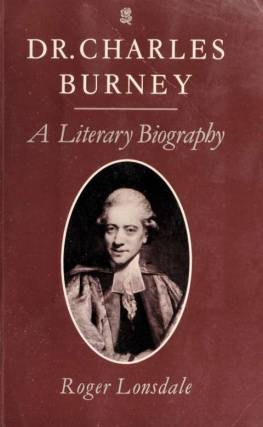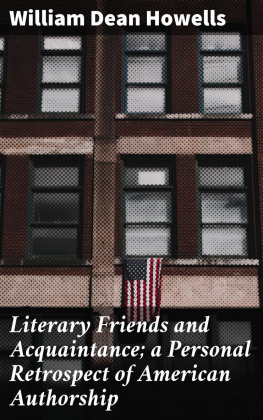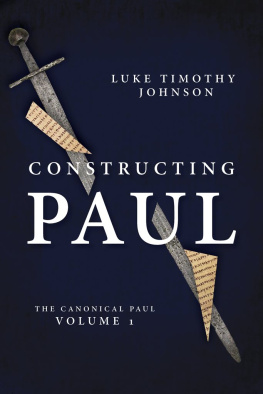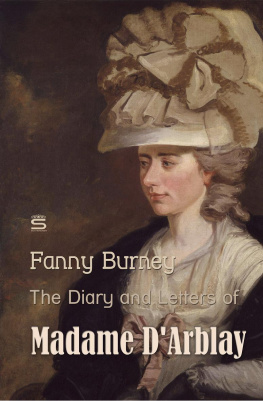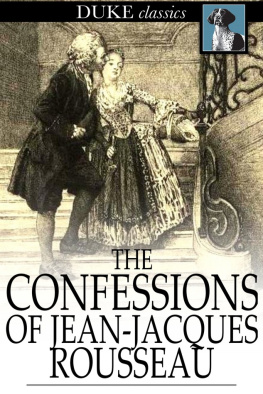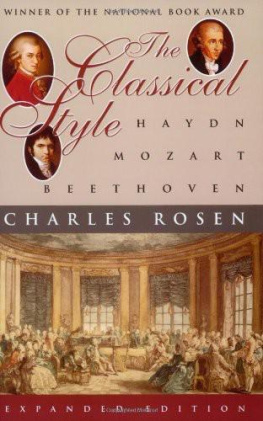This book made available by the Internet Archive.
TO MY FATHER AND MOTHER
m . * ji ^*-\

iiV,9Qi/ oat
^ m
l. '*?: y
u



PREFACE AND ACKNOWLEDGEMENTS
S OME brief explanation of the relationship of this biography to the late Dr. P. A. Seholess The Great Doctor Burney (1948) may be helpful. During the 1950s several large collections of unpublished Burney family papers came to light. My first purpose has been to investigate and describe such of this new material as directly concerns Dr. Burney himself. It includes a correspondence of approximately 1,500 letters between Burney and his relations and friends, notebooks which he used while working on his History of Adusic and other books, and some 150 fragments of the autobiography which he completed towards the end of his life and which was thought until recently to have been entirely destroyed by his daughter Madame dArblay.
A number of these letters, usually censored to some extent, were printed in Madame dArblays Memoirs of her father and in her Diary and Letters. Otherwise, of this manuscript material only about 100 letters were known to Dr. Scholes. This fact perhaps sufficiently explains why, although I have inevitably often been indebted to Dr. Scholess devoted research into particular aspects of Burneys life and times, I have nevertheless had to provide what amounts to a new biographical framework.
The new material does not merely contain fresh factual information about Burneys life! it makes possible, and indeed essential, a new approach to his personality and to the nature of his career as a whole. Inevitably, because of the sheer quantity of material available, I have not found it possible to deal at length with all of Burneys many activities and interests. In pursuing what have seemed to me to be the central elements in his career, I have not usually felt it necessary to describe in detail a number of interesting topics which previous biographers of the Burneys have fully documented already, although I have tried to indicate where such investigations can be found. Thus, Professor Joyce Hemlow, the first explorer of the new hoards of Burneyana, has already admirably described the many domestic excitements and upheavals in Burneys family
viii PREFACE AND ACKNOWLEDGEMENTS
during his lifetime in her History of Fanny Burney (1958). Similarly it has not seemed to me necessary to imitate or reproduce the informative and entertaining descriptions of eighteenth-century musical life in general which Dr. Scholes provided as the background to his biography nor have I attempted any radical reassessment of Burneys strictly musical achievement. I have described such of his musical activities as are biographically central: less important, if interesting, musical material in the unpublished papers will have to wait until Burneys correspondence is eventually published in its entirety.
It will be apparent from my title that I have approached Burney basically as an author; but as he remained a professional teacher of music until the age of seventy-eight and as most of his books concern music, my use of the word literary may require explanation. My approach is not an arbitrary abstraction from Burneys musical career. What I hope I have demonstrated is that his chief ambition and achievement was to be accepted as a man of letters rather than as a mere musician. At the mid-point of his career he began consciously to labour to transcend his original profession. It is this transition, and the social as well as literary achievement which it represents, that I have tried to document: the unprecedented way in which Burney, a professional musician, succeeded in capturing a polite literary audience for his books, and was duly rewarded with an equally unprecedented welcome into the most distinguished intellectual and social circles of his time.
This basic approach to Burneys career was originally adopted by his daughter Madame dArblay, although it has since been ignored. In most other respects, however, my account of him differs from that of his first biographer, whose zealously adoring portrait of an invariably good-natured and almost saintly father has succeeded very largely in controlling subsequent descriptions of him. The charm which his daughter attributed to him will still I trust be apparent in this book: the fact that an intensely ambitious, almost at times ruthless, side to his character must also now emerge will perhaps make him more recognizably human and for that reason need not diminish the affection with which he is usually regarded. In any case, I have tried to use the new material which has been made available to me in such a way as to enable Burney for the first time to tell his own
PREFACE AND ACKNOWLEDGEMENTS ix
Story as far as possible, with the assistance of his friends and with the minimum of interference from his daughter.
I am greatly indebted to the following owners of private collections of manuscripts, who have allowed me to examine and quote material in their possession and have often gone to much trouble to assist me: Mr. Gerald Coke of Bentley, Hampshire; John R. G. Gomyn, Esquire, of Turnastone, Herefordshire; Professor F. W. Hides of Yale University; Mr. and Mrs. Donald Hyde of Somerville, New Jersey; Mr. Brooks Shepard, Librarian of the School of Music at Yale University; and the Warden of All Souls College, Oxford.
I wish also to thank officials of the following libraries for permission to quote material in their custody: the Berg Collection of the New York Public Library; the Folger Library, Washington; the Houghton Library, Harvard; the John Rylands Library, Manchester; and the Pierpont Morgan Library, New York. It is a pleasure to acknowledge the skill and patience with which my requests have been treated in the other libraries where I have done much of my work: the Sterling Memorial Library, Yale University; the Bodleian Library, Oxford; and the British Museum. Mr. Vincent Quinn, the Librarian of Balliol College, Oxford, and his staff have also dealt cheerfully with what must often have been tiresome demands.
During the two years which I spent at Yale I benefited from the advice and assistance of Professor Frank T. Brady, Mr. Herman W. Liebert, Dr. Robert A. Metzdorf, Mr. Brooks Shepard, and Miss Marjorie Wynne. Mrs. C. Sladitz of the Berg Collection of the New York Public Library particularly facilitated my work there. Since my return to Oxford I have been indebted for corrections, suggestions, and information to Mr. John Barnard, Mr. John Bryson, Professor Bertram Davis, Professor Herbert Davis, Mr. Martin Dodsworth, Mr. H. D. Johnstone, Dr. C. B. Oldman, Signor Gian Carlo Roscioni, and Professor James Sutherland. I am particularly grateful to Professor Joyce Hemlow, who helped me in the early stages of my research, when I was able to benefit from her unrivalled knowledge of the Burneys and of the daunting collections of the familys papers; and to Dr. L. F. Powell, who patiently read through the manuscript as it neared completion and to whose

